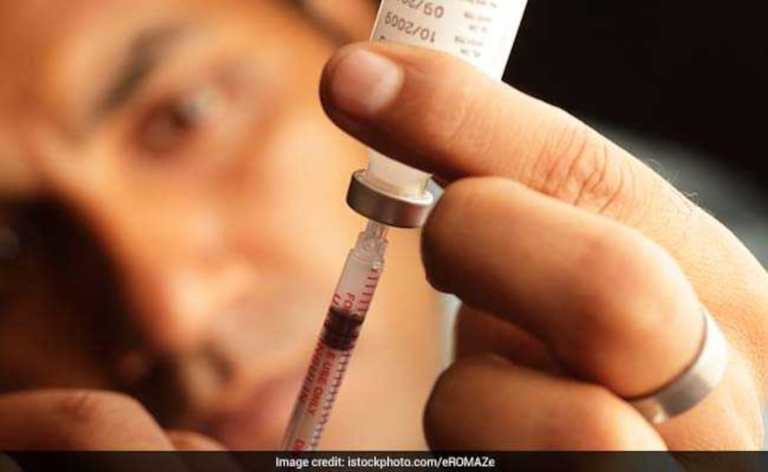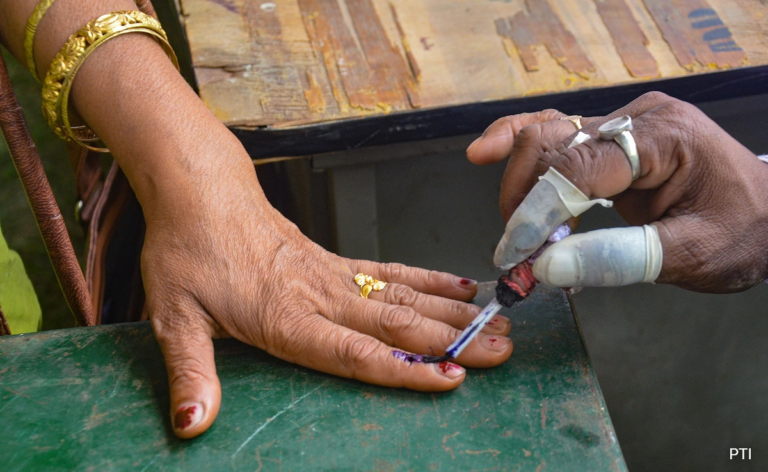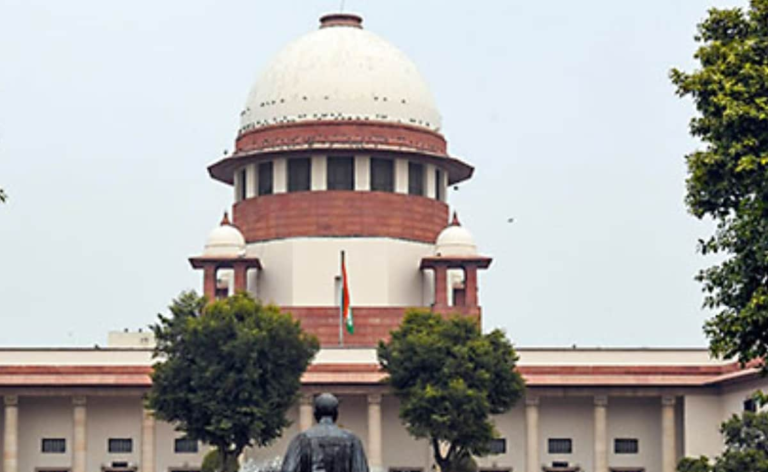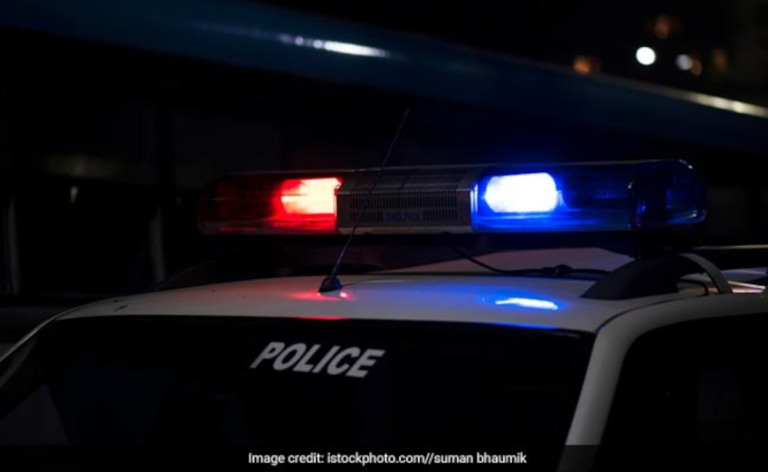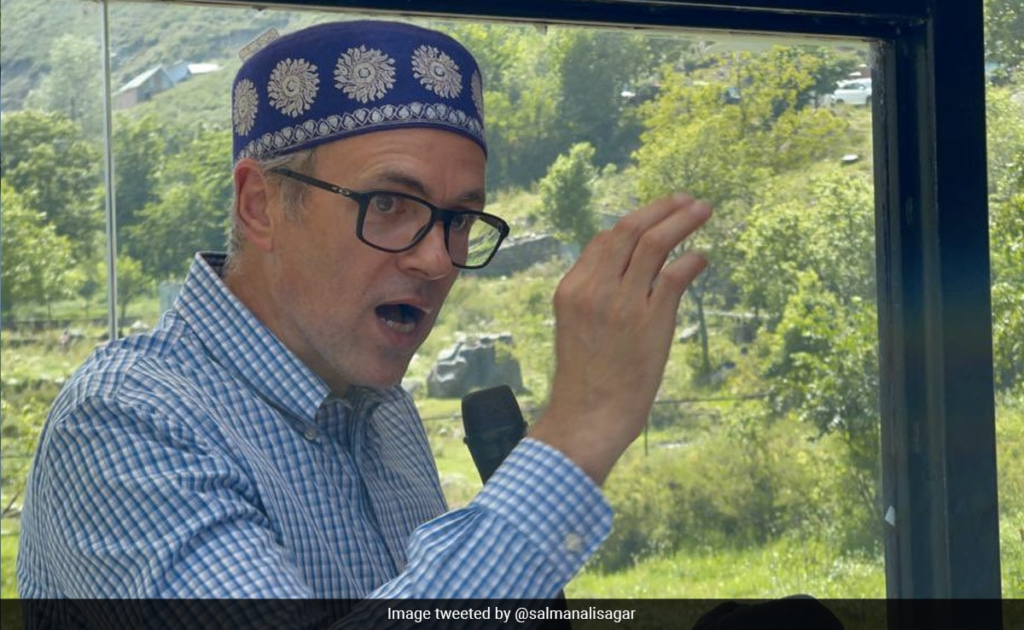
Omar Abdullah is one of the fiercest critics of the government’s Article 370 move. (FILE)
Srinagar:
The Jammu and Kashmir assembly, in its first order of business after elections, will pass a resolution against the centre’s decision to strip the region of its statehood and special status, said Omar Abdullah, former J&K chief minister and National Conference leader.
He said that it’s going to be a struggle after elections for the restoration of statehood and rights that have been taken away from the people.
“The first order of business of the elected assembly of J&K should be to make it known not just to the rest of India but to the world at large that the people of J&K don’t agree with what happened to us on 5th August 2019, and then we start undoing what was done to us,” said Mr Abdullah, in an exclusive interview with NDTV.
Assembly polls in Jammu and Kashmir – first after the region was stripped of its statehood and special status under Article 370 in 2019 – would be held in three phases on September 18, 25 and October 1. The votes will be counted on October 4.
“I believe that one of the main jobs of the elected chief minister will be to ensure that full statehood is restored to J&K at the earliest because only as a state we can start to undo the damage that has been done to J&K after 2019,” he said.
The announcement of polls to the 90-member assembly comes months after the Supreme Court upheld the centre’s decision to scrap Jammu and Kashmir’s special status and directed that assembly elections be held by September 30. The last assembly elections were held in Jammu and Kashmir in November-December 2014.
One of the fiercest critics of the government’s Article 370 move, the 54-year-old said that the NC will again approach the Supreme Court if the centre doesn’t restore the statehood of J&K immediately.
“It’s going to be a fight to restore the statehood. Nothing is going to come to us easily. Even these elections didn’t come to us easily,” he said.
In December 2023, a five-judge bench of the Supreme Court unanimously backed the Centre’s move to scrap Article 370, calling it a “temporary provision” to ease the former state’s 1947 merger with India.
The top court also directed the centre to restore statehood as soon as possible.
Mr Abdullah also launched a scathing attack on “unqualified and unquestioned” Jammu and Kashmir Lt Governor Manoj Sinha, saying, “The elected government will push back the dictatorial rule of Lt Governor”.
Jammu and Kashmir has been under the President’s Rule since December 19, 2018. Initially, it was announced for a period of six months after a political crisis in June that year due to the BJP withdrawing support to then ruling Peoples Democratic Party government led by former chief minister Mehbooba Mufti.
The rule has been extended multiple times since then.
“Today, the LG is the unqualified and unquestioned ruler of J&K. Even with the powers the LG has, he will not be able to exercise them as freely once you have an elected government and a strong Chief Minister,” said the former chief minister of Jammu and Kashmir.
Omar Abdullah also hinted at reconsidering his decision to refrain from participating in polls until Jammu and Kashmir’s statehood is restored.
“I have been inundated with messages, emails, phone calls. Ultimately, the party will decide and the party president will decide,” said Mr Abdullah whose father, Farooq Abdullah, is the president of the National Conference.
“I would be lying if I say there is no pressure on me,” he added.
Calling the elections “the most significant” in the last three generations, Mr Abdullah said, “These (elections) are happening when Ladakh is not a part of us, after we are broken into two. They are taking place after scrapping of our special status and delimitation”
“The results of these elections will be far-reaching,” he added.
He further said that the elections would be an opportunity for people to choose an assembly that will “register its unhappiness with what was done on 5th August 2019”.
Mr Abdullah, reticent about an alliance with the Congress, said that even though that “door is not closed”, seat-sharing “brings with it its own challenges”.
“We had one preliminary round of discussions with the Congress, it didn’t reach very far. After that, we didn’t hear from them again. It’s not a closed chapter as far as we are concerned,” he said.
“Seat sharing brings with it its own challenges, I have 90 candidates. There is a problem of plenty,” he said.
He emphasised that even if they work out a seat-sharing deal with the Congress, it “will not be smooth”.
In the recently held Lok Sabha elections in Jammu and Kashmir, the Congress-NC alliance had got 41.7 percent votes while former allies, the BJP and PDP, got 17 and eight percent, respectively.

